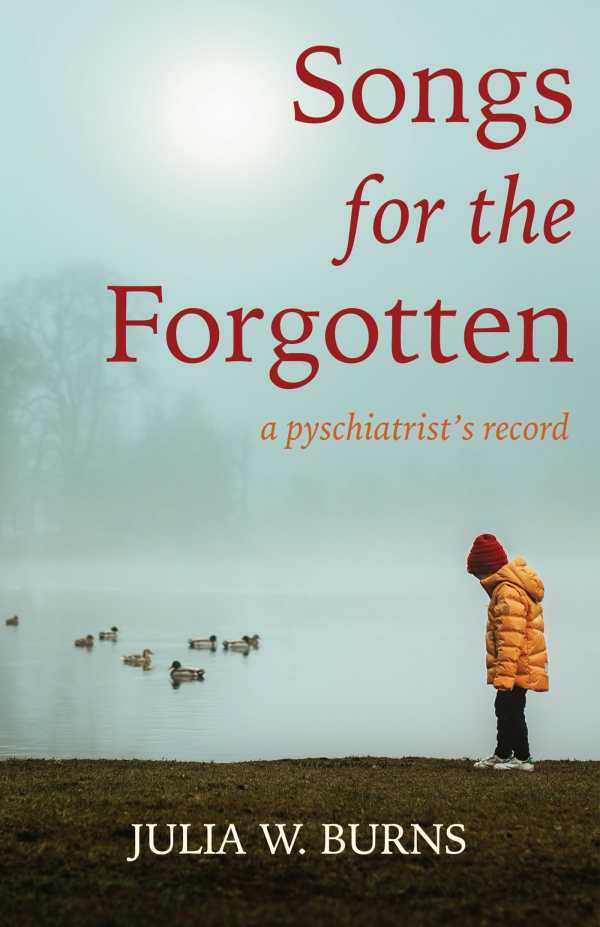Songs for the Forgotten
A Psychiatrist's Record
This medical memoir is an encouraging starting point for healing, in particular in its wisdom about perpetrators often being victims, too.
Julia W. Burns’s empathetic career memoir Songs for the Forgotten gathers patient stories from her time as a psychiatrist, illuminating abuse and its enduring trauma.
Once the medical director at White Pines, a residential child welfare facility in New Hampshire, Burns left the job when secondary PTSD and a crisis of faith set in. In brief sketches about patients that alternate with stories of her own rural upbringing in North Carolina, Burns traces the reasons why she arrived at the role of a compassionate listener.
Focused on empowering voices, each section is introduced by a Bible verse or pertinent quote. The stories of emotional, physical, and sexual abuse that follow are all too familiar in their harrowing natures. Still, the understandable need to preserve patient privacy, and the brevity of each case, results in a blurred succession of people whose main defining traits are the traumas that they experienced, with only occasional direct dialogues. The effect is removed, such that the overall message about awareness of abuse’s prevalence stands out more than the subjects whom the book seeks to uplift.
Most of the book’s sections conclude with a song that recounts the survivors’ stories. These lyrics—which Burns later reveals were written as part of her healing from work-related burnout—are transparent, sometimes graphic, plaintive, and pleading summaries that make use of prosaic rhythms. Their descriptions tend toward heightened, emotional phrasing, including “Her eyes were downcast” and “an abandoned house not filled with love,” as well as recreated scenes (such as of imagining a fetus weeping and waiting “to be born into her dead sister’s life”). Despite their clear, heartfelt outrage, such instances are sensational and undermine the grave situations they address.
Sections about Burns’s childhood portray demanding parents who used physical punishments, yet who were nurturing in other ways. Volunteering alongside women in her family helped Burns to see that not all families were fortunate. These experiences tie in to Burns’s understanding of herself as clarified in later chapters, though such reflection is minimal. An intermittent, childlike narrative voice covers her early years, but involves simplified language that’s an awkward fit with the book’s other sections, which are narrated from a professional vantage.
Details from Burns’s medical school training are vibrant in their depictions of how trauma contributes to mental health issues, though this reality, and the realities of PTSD, were often ignored at the time of her education. She conveys wrenching feelings of helplessness from watching abused patients and abusers walk away because of a lack of evidence, and forays into her work with war veterans, further highlighting PTSD’s fallout.
The book’s back-and-forth structure culminates with Burns’s brief hospitalization as a result of stress and insomnia. Changes that she made while searching for balance are covered; they include turning to writing about her patients and painting. Though exposing abuse is, according to Burns, still too undersung, this book is an encouraging starting point for healing, in particular in its wisdom about perpetrators often being victims, too.
Songs for the Forgotten is a candid psychiatrist’s memoir that recalls absorbing other people’s pains, but also finding one’s way to personal recovery.
Reviewed by
Karen Rigby
Disclosure: This article is not an endorsement, but a review. The publisher of this book provided free copies of the book and paid a small fee to have their book reviewed by a professional reviewer. Foreword Reviews and Clarion Reviews make no guarantee that the publisher will receive a positive review. Foreword Magazine, Inc. is disclosing this in accordance with the Federal Trade Commission’s 16 CFR, Part 255.

